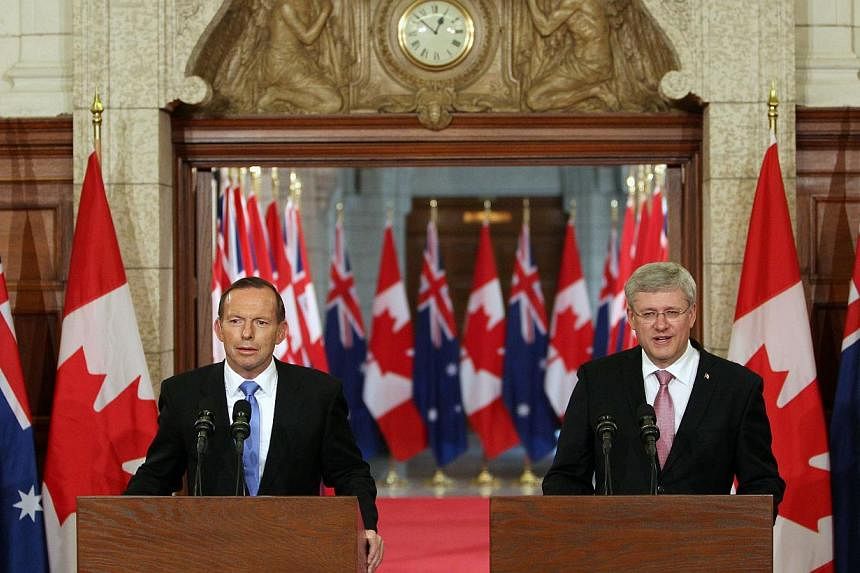OTTAWA (AFP) - Canada and Australia's conservative prime ministers said on Monday economic concerns trump climate action, with Ottawa's Stephen Harper insisting any nation claiming otherwise is lying.
Both leaders have faced increased criticism over their climate policies after US President Barack Obama last week unveiled the first major regulations to reduce greenhouse-gas emissions in the United States.
"It's not that we don't seek to deal with climate change, but we seek to deal with it in a way that will protect and enhance our ability to create jobs and growth and not destroy jobs and growth in our country," Canadian Prime Minister Stephen Harper said.
"And, frankly, every single country in the world, this is their position: no country is going to undertake actions on climate change, no matter what they say, no country is going to take actions that are going to deliberately destroy jobs and growth in their country.
"We are just a little more frank about that, but that is the approach that every country is seeking." Visiting Australian Prime Minister Tony Abbott, who is on a trade mission to North America, acknowledged that climate change is "a significant problem." But he added, "it's not the only or even the most important problem that the world faces." "We should do what we reasonably can to limit emissions and avoid climate change, man-made climate change, but we shouldn't clobber the economy," he said.
Mr Obama's plan is to cut emissions from US coal plants 30 per cent by 2030, pushing the United States closer to an emissions reduction target pledged at UN climate talks in 2010.
Canada will miss its target.
Both countries have committed to reducing emissions by 17 per cent below their 2005 levels by 2020.
But Canada produces less than two percent of global emissions, while the United States produces nearly 20 per cent.
During his two-day stop in Ottawa, Mr Abbott also defended the Five Eyes spying program as "a partnership for the good of the world and not simply for the benefit of its members." Australia, Britain, Canada, the United States and New Zealand are party to the decades-old signals intelligence sharing agreement known as the Five Eyes.

